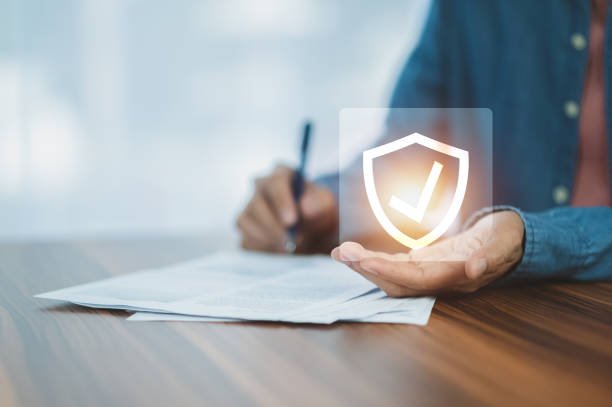Introduction
Driving without car insurance is one of those gray areas that often leads to confusion and heated debates. Some might think it’s a way to save money, while others believe it’s outright illegal everywhere. But is it really possible to drive legally without car insurance? This article explores the topic in depth, addressing legal requirements, risks, and alternatives while ensuring you\u2019re informed and equipped to make the best decisions.
Understanding Car Insurance Requirements
What is Car Insurance?
Car insurance is a contract between you and an insurance provider that protects you financially in case of accidents, theft, or other damages involving your vehicle. It typically covers liability, personal injury, and vehicle repair costs, ensuring you\u2019re not left footing a massive bill when things go wrong.
The Role of Car Insurance in Legal Driving
In most jurisdictions, car insurance isn’t just a recommendation\u2014it’s a legal requirement. Governments mandate insurance to protect not only drivers but also pedestrians and other road users. Insurance ensures that any damages or injuries resulting from accidents are adequately covered.
Is Driving Without Insurance Ever Legal?
Situations Where It Might Be Allowed
Believe it or not, there are instances where driving without traditional car insurance might be legal, though these situations are rare and highly regulated.
Financial Responsibility Laws
Some states in the U.S. allow drivers to demonstrate financial responsibility as an alternative to purchasing car insurance. This usually involves:
- Posting a bond with the state.
- Depositing a significant sum of money as proof you can cover potential damages.
Exemptions in Certain States or Countries
In a handful of regions, car insurance isn’t mandatory. For example, in New Hampshire, drivers aren\u2019t required to have insurance but must prove financial responsibility if they\u2019re involved in an accident.
Risks of Driving Uninsured
While it might technically be legal in some scenarios, driving without insurance comes with substantial risks:
- Financial ruin in the event of an accident.
- Limited legal protections.
- Higher costs for damages and medical bills.
Penalties for Driving Without Insurance
Fines and Legal Consequences
Driving without insurance can lead to hefty fines, even in states where alternatives are allowed. Fines often range from $500 to $5,000, depending on the state and circumstances of the violation.
License Suspension or Revocation
Many jurisdictions impose harsh penalties, such as:
- Immediate suspension of your driver\u2019s license.
- Requirement to pay reinstatement fees to get your license back.
Long-Term Financial Impacts
Beyond fines, driving uninsured can have long-lasting financial repercussions:
- Increased insurance premiums when you eventually purchase coverage.
- Possible lawsuits if you’re found liable in an accident.
Alternatives to Traditional Car Insurance
Self-Insurance Options
Some states allow drivers to self-insure by demonstrating substantial financial resources. This is typically reserved for businesses or individuals with fleets of vehicles.
Pay-Per-Mile Insurance
For infrequent drivers, pay-per-mile insurance offers a more affordable option. You\u2019re only charged based on the miles you drive, making it an attractive alternative to traditional coverage.
Surety Bonds and Other Legal Alternatives
Surety bonds act as a guarantee that you can pay for damages in the event of an accident. While not widely used, this option is available in some regions as a legal substitute for insurance.
How States Handle Insurance Laws
States with Strict Mandatory Insurance Laws
Most U.S. states require drivers to carry at least liability insurance, which covers damages and injuries to others. States like California and Texas enforce strict penalties for uninsured drivers.
States with Alternative Compliance Methods
States like New Hampshire and Virginia offer more flexible options. For instance:
- New Hampshire allows drivers to go uninsured if they can prove financial responsibility.
- Virginia permits drivers to pay an uninsured motorist fee to legally drive without insurance, though this provides no coverage in case of an accident.
Exceptions to the Rule
Driving on Private Property
Car insurance requirements typically apply only to public roads. If you\u2019re driving exclusively on private property, insurance laws might not apply.
Special Exemptions for Certain Vehicles
Vehicles like golf carts, ATVs, and some agricultural equipment may be exempt from insurance requirements, depending on local laws.
The Role of Financial Responsibility Laws
What They Are
Financial responsibility laws allow drivers to legally operate vehicles without traditional insurance if they can prove they have the financial means to cover potential damages. This often involves:
- Posting a bond.
- Depositing cash with the state treasury.
How They Work in Practice
While these laws provide an alternative, they\u2019re often impractical for most individuals due to the high upfront costs.
Risks of Going Without Car Insurance
Financial Risks
Without insurance, you\u2019re fully liable for any damages or injuries caused in an accident. This could mean:
- Paying out-of-pocket for vehicle repairs.
- Covering costly medical bills for injured parties.
Liability for Damages
Even minor accidents can lead to lawsuits, putting your personal assets at risk if you\u2019re found at fault.
Impact on Others and Public Safety
Uninsured drivers can leave victims of accidents without adequate compensation, creating financial hardship for innocent parties.
Cost vs. Consequences of Insurance
Is Car Insurance Really That Expensive?
While car insurance might seem costly, it\u2019s often more affordable than the potential costs of driving uninsured. Many insurers offer:
- Discounts for safe driving.
- Bundling options to lower costs.
The True Cost of an Accident Without Coverage
The financial fallout from an accident can be astronomical. For example:
- Repair costs for modern vehicles often exceed $5,000.
- Medical bills can easily climb into six figures.
How to Obtain Affordable Car Insurance
Tips for Saving on Car Insurance
Here are some ways to lower your insurance costs:
- Shop around and compare quotes.
- Opt for higher deductibles.
- Maintain a clean driving record.
- Take advantage of discounts, such as those for bundling policies.
Programs for Low-Income Drivers
Several states offer low-cost insurance programs for eligible drivers. For example, California\u2019s Low-Cost Automobile Insurance Program provides affordable coverage to income-eligible residents.
FAQs About Driving Without Insurance
Common Misconceptions
Many people believe myths like “I don\u2019t need insurance if I\u2019m a good driver.” In reality, accidents can happen to anyone, and insurance is there to protect against the unexpected.
Questions You Should Ask Your Insurer
When shopping for insurance, ask about:
- Coverage limits.
- Optional add-ons like roadside assistance.
- Discounts for safe driving.
Conclusion
In most cases, driving without car insurance isn\u2019t just risky\u2014it\u2019s illegal. Even in states that allow alternatives, the financial and legal consequences can be severe. Car insurance provides invaluable protection for you and others on the road, and it\u2019s worth the investment to avoid potentially catastrophic outcomes.
1. How long can you go without paying your car insurance?
Most insurance companies offer a grace period for late payments, typically between 10 and 30 days. If you don’t pay by the end of the grace period, your policy may be canceled. This cancellation can leave you without coverage, and driving uninsured during this time is illegal in most places. Additionally, reinstating a canceled policy may involve late fees or increased premiums.
2. How long can you keep a car without driving it?
You can keep a car indefinitely without driving it, but it depends on whether you plan to store or maintain it. If the vehicle is stored and not driven, you might not need full insurance, though comprehensive coverage is advisable to protect against theft, vandalism, or natural disasters. Some states require you to keep at least liability insurance unless you officially declare the car as non-operational (via a “Non-Op” status with the DMV).
3. What happens if a car is stolen without insurance?
If your car is stolen and you don’t have insurance, you’ll bear the entire financial loss. Comprehensive insurance is the type of coverage that protects against theft. Without it, you won’t receive compensation for the stolen vehicle. Reporting the theft to the police is still essential, as it may help recover your car or prevent liability issues if it’s used in a crime.
4. How long does an insurance lapse stay on your record?
An insurance lapse can stay on your record for up to three to five years, depending on the state and your insurer. Lapses in coverage often result in higher premiums when you purchase a new policy, as insurers may view you as a higher-risk driver. It’s best to avoid a lapse by maintaining continuous coverage or using alternatives like short-term policies.
5. Can I stop paying insurance on a car I don’t drive?
You can stop paying insurance on a car you don’t drive, but you must take specific steps to avoid legal or financial issues. First, officially declare the vehicle as non-operational with your local DMV to avoid penalties for lacking insurance. Keep in mind that without insurance, you won’t be covered for theft, vandalism, or other risks. If you plan to store the car, consider a comprehensive-only policy to protect it during the non-driving period.



Pingback: Debunking Common Car Insurance Myths for Clear Insights